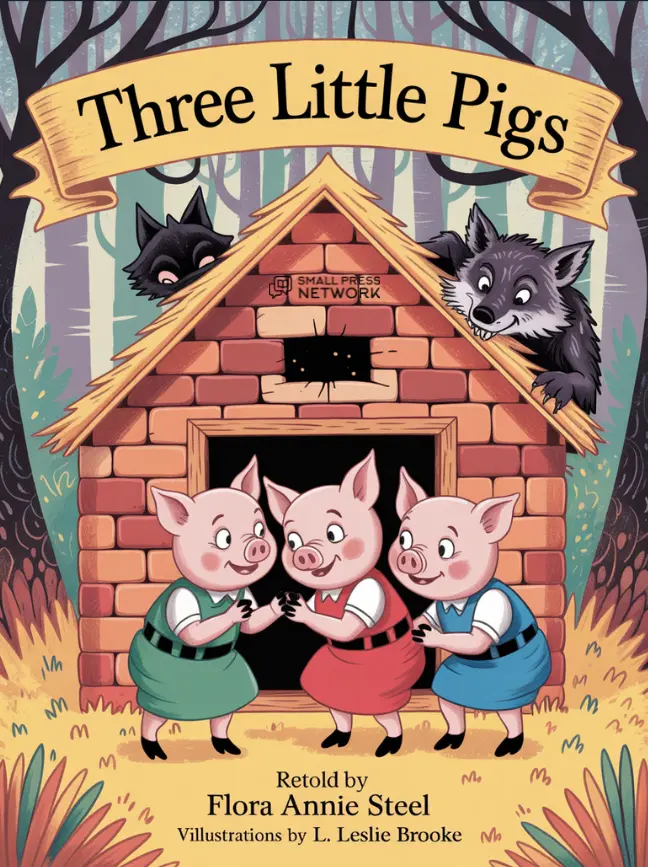786
Chapter XVI
Berg, the Rostóvs’ son-in-law, was already a colonel wearing the orders of Vladímir and Anna, and he still filled the quiet and agreeable post of assistant to the head of the staff of the assistant commander of the first division of the Second Army.
On the first of September he had come to Moscow from the army.
He had nothing to do in Moscow, but he had noticed that everyone in the army was asking for leave to visit Moscow and had something to do there. So he considered it necessary to ask for leave of absence for family and domestic reasons.
Berg drove up to his father-in-law’s house in his spruce little trap with a pair of sleek roans, exactly like those of a certain prince. He looked attentively at the carts in the yard and while going up to the porch took out a clean pocket handkerchief and tied a knot in it.
From the anteroom Berg ran with smooth though impatient steps into the drawing room, where he embraced the count, kissed the hands of Natásha and Sónya, and hastened to inquire after “Mamma’s” health.
“Health, at a time like this?” said the count. “Come, tell us the news! Is the army retreating or will there be another battle?”
“God Almighty alone can decide the fate of our fatherland, Papa,” said Berg. “The army is burning with a spirit of heroism and the leaders, so to say, have now assembled in council.
No one knows what is coming. But in general I can tell you, Papa, that such a heroic spirit, the truly antique valor of the Russian army, which they—which it” (he corrected himself) “has shown or displayed in the battle of the twenty-sixth—there are no words worthy to do it justice! I tell you, Papa” (he smote himself on the breast as a general he had heard speaking had done, but Berg did it a trifle late for he should have struck his breast at the words “Russian army”), “I tell you frankly that we, the commanders, far from having to urge the men on or anything of that kind, could hardly restrain those… those… yes, those exploits of antique valor,” he went on rapidly. “General Barclay de Tolly risked his life everywhere at the head of the troops, I can assure you. Our corps was stationed on a hillside. You can imagine!”
And Berg related all that he remembered of the various tales he had heard those days.
Natásha watched him with an intent gaze that confused him, as if she were trying to find in his face the answer to some question.
“Altogether such heroism as was displayed by the Russian warriors cannot be imagined or adequately praised!” said Berg, glancing round at Natásha, and as if anxious to conciliate her, replying to her intent look with a smile. “‘Russia is not in Moscow, she lives in the hearts of her sons!’ Isn’t it so, Papa?” said he.
Just then the countess came in from the sitting room with a weary and dissatisfied expression.
Berg hurriedly jumped up, kissed her hand, asked about her health, and, swaying his head from side to side to express sympathy, remained standing beside her.
“Yes, Mamma, I tell you sincerely that these are hard and sad times for every Russian. But why are you so anxious? You have still time to get away….”
787
“I can’t think what the servants are about,” said the countess, turning to her husband. “I have just been told that nothing is ready yet. Somebody after all must see to things. One misses Mítenka at such times. There won’t be any end to it.”
The count was about to say something, but evidently restrained himself. He got up from his chair and went to the door.
At that moment Berg drew out his handkerchief as if to blow his nose and, seeing the knot in it, pondered, shaking his head sadly and significantly.
“And I have a great favor to ask of you, Papa,” said he.
“Hm…” said the count, and stopped.
“I was driving past Yusúpov’s house just now,” said Berg with a laugh, “when the steward, a man I know, ran out and asked me whether I wouldn’t buy something. I went in out of curiosity, you know, and there is a small chiffonier and a dressing table. You know how dear Véra wanted a chiffonier like that and how we had a dispute about it.” (At the mention of the chiffonier and dressing table Berg involuntarily changed his tone to one of pleasure at his admirable domestic arrangements.) “And it’s such a beauty! It pulls out and has a secret English drawer, you know! And dear Véra has long wanted one. I wish to give her a surprise, you see. I saw so many of those peasant carts in your yard. Please let me have one, I will pay
the man well, and…”
The count frowned and coughed.
“Ask the countess, I don’t give orders.”
“If it’s inconvenient, please don’t,” said Berg. “Only I so wanted it, for dear Véra’s sake.”
“Oh, go to the devil, all of you! To the devil, the devil, the devil…” cried the old count. “My head’s in a whirl!”
And he left the room. The countess began to cry.
“Yes, Mamma! Yes, these are very hard times!” said Berg.
Natásha left the room with her father and, as if finding it difficult to reach some decision, first followed him and then ran downstairs.
Pétya was in the porch, engaged in giving out weapons to the servants who were to leave Moscow. The loaded carts were still standing in the yard. Two of them had been uncorded and a wounded officer was climbing into one of them helped by an orderly.
“Do you know what it’s about?” Pétya asked Natásha.
She understood that he meant what were their parents quarreling about. She did not answer.
“It’s because Papa wanted to give up all the carts to the wounded,” said Pétya. “Vasílich told me. I consider…”
“I consider,” Natásha suddenly almost shouted, turning her angry face to Pétya, “I consider it so horrid, so abominable, so… I don’t know what. Are we despicable Germans?”
Her throat quivered with convulsive sobs and, afraid of weakening and letting the force of her anger run to waste, she turned and rushed headlong up the stairs.
Berg was sitting beside the countess consoling her with the respectful attention of a relative.
The count, pipe in hand, was pacing up and down the room, when Natásha, her face distorted by anger, burst in like a tempest and approached her mother with rapid steps.
788
“It’s horrid! It’s abominable!” she screamed. “You can’t possibly have ordered it!”
Berg and the countess looked at her, perplexed and frightened. The count stood still at the window and listened.
“Mamma, it’s impossible: see what is going on in the yard!” she cried. “They will be left!…”
“What’s the matter with you? Who are ‘they’? What do you want?”
“Why, the wounded! It’s impossible, Mamma. It’s monstrous!… No, Mamma darling, it’s not the thing. Please forgive me, darling…. Mamma, what does it matter what we take away?
Only look what is going on in the yard… Mamma!… It’s impossible!”
The count stood by the window and listened without turning round. Suddenly he sniffed and put his face closer to the window.
The countess glanced at her daughter, saw her face full of shame for her mother, saw her agitation, and understood why her husband did not turn to look at her now, and she glanced round quite disconcerted.
“Oh, do as you like! Am I hindering anyone?” she said, not surrendering at once.
“Mamma, darling, forgive me!”
But the countess pushed her daughter away and went up to her husband.
“My dear, you order what is right…. You know I don’t understand about it,” said she, dropping her eyes shamefacedly.
“The eggs… the eggs are teaching the hen,” muttered the count through tears of joy, and he embraced his wife who was glad to hide her look of shame on his breast.
“Papa! Mamma! May I see to it? May I?…” asked Natásha. “We will still take all the most necessary things.”
The count nodded affirmatively, and Natásha, at the rapid pace at which she used to run when playing at tag, ran through the ballroom to the anteroom and downstairs into the yard.
The servants gathered round Natásha, but could not believe the strange order she brought them until the count himself, in his wife’s name, confirmed the order to give up all the carts to the wounded and take the trunks to the storerooms. When they understood that order the servants set to work at this new task with pleasure and zeal. It no longer seemed strange to them but on the contrary it seemed the only thing that could be done, just as a quarter of an hour before it had not seemed strange to anyone that the wounded should be left behind and the goods carted away but that had seemed the only thing to do.
The whole household, as if to atone for not having done it sooner, set eagerly to work at the new task of placing the wounded in the carts. The wounded dragged themselves out of their rooms and stood with pale but happy faces round the carts. The news that carts were to be had spread to the neighboring houses, from which wounded men began to come into the Rostóvs’ yard. Many of the wounded asked them not to unload the carts but only to let them sit on the top of the things. But the work of unloading, once started, could not be arrested. It seemed not to matter whether all or only half the things were left behind. Cases full of china, bronzes, pictures, and mirrors that had been so carefully packed the night before now lay about the yard, and still they went on searching for and finding possibilities of unloading this or that and letting the wounded have another and yet another cart.
“We can take four more men,” said the steward. “They can have my trap, or else what is to become of them?”
789
“Let them have my wardrobe cart,” said the countess. “Dunyásha can go with me in the carriage.”
They unloaded the wardrobe cart and sent it to take wounded men from a house two doors off. The whole household, servants included, was bright and animated. Natásha was in a state of rapturous excitement such as she had not known for a long time.
“What could we fasten this onto?” asked the servants, trying to fix a trunk on the narrow footboard behind a carriage. “We must keep at least one cart.”
“What’s in it?” asked Natásha.
“The count’s books.”
“Leave it, Vasílich will put it away. It’s not wanted.”
The phaeton was full of people and there was a doubt as to where Count Peter could sit.
“On the box. You’ll sit on the box, won’t you, Pétya?” cried Natásha.
Sónya too was busy all this time, but the aim of her efforts was quite different from Natásha’s. She was putting away the things that had to be left behind and making a list of them as the countess wished, and she tried to get as much taken away with them as possible.





